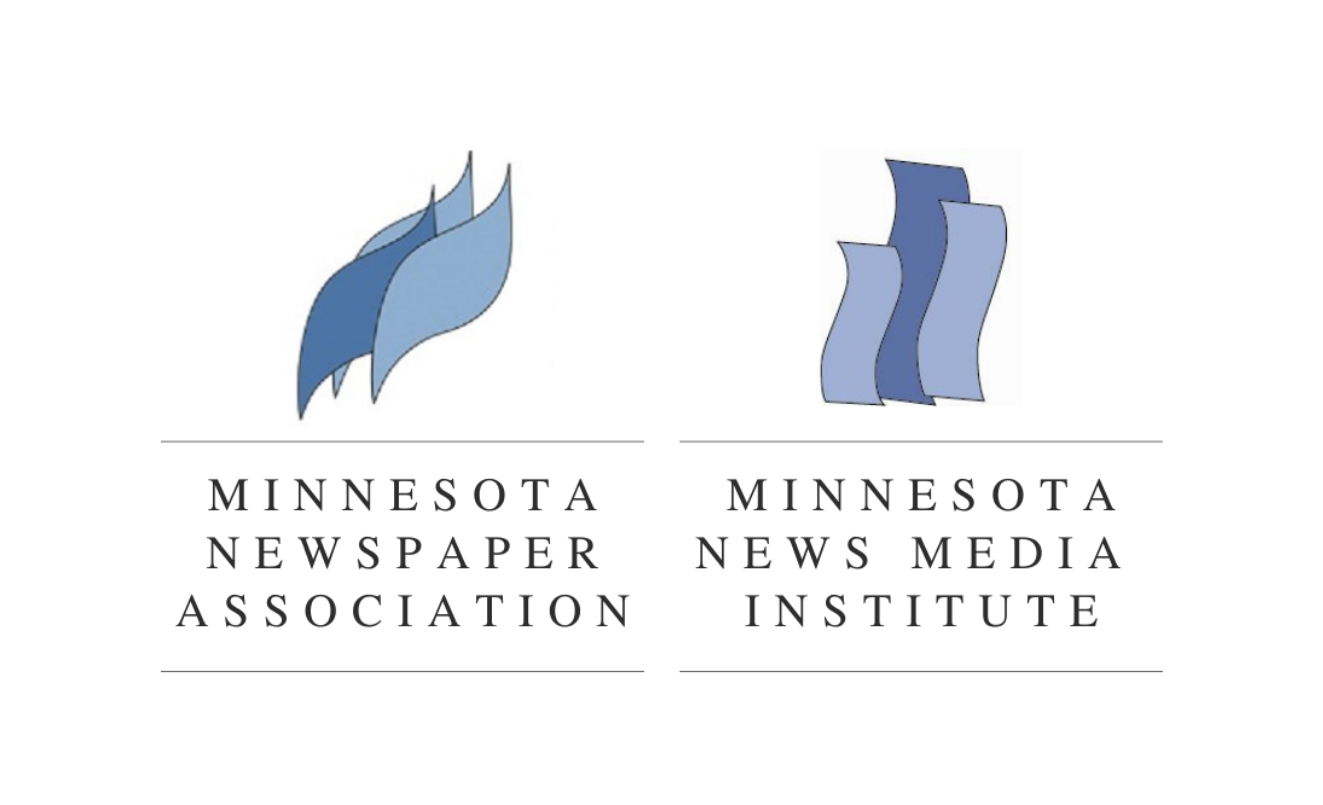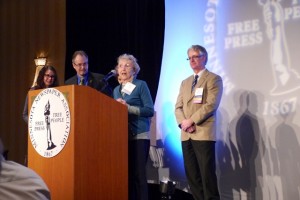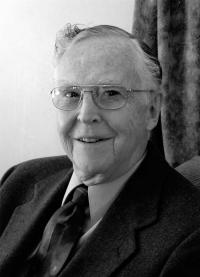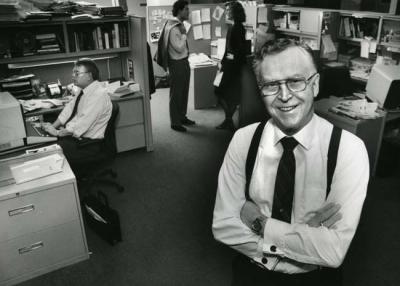The MNA Board of Directors named the late John R. Finnegan Sr. winner of the 2013 Distinguished Service to Journalism Award. On Thursday, January 24, members of the Finnegan family, including John’s wife Norma, were on-hand at the MNA Convention to accept the award.
John was a recipient of MNA’s prestigious Al McIntosh Distinguished Service to Journalism award in 1973, 1995 and again in 2013. He is the only three-time recipient of the award.
John served on the MNA board of directors and was president of MNA in 1990. He co-chaired the MNA Legislative Committee, as long as anyone here can remember. He tried to resign twice, but his resignation was rejected on both occasions.
“We would not even think of having an MNA meeting to discuss legislation without out calling Jack to come give his input,” said MNA Past President John Stone.
John was a champion of the First Amendment and worked tirelessly to keep government open and accountable. His contributions to MNA and to the Minnesota journalism industry are simply too numerous to mention. We will be forever indebted to him.
MNA Past President Don Smith said, “I was fortunate to have John follow me in the MNA presidency. He exuded excellence in every way. He was also rock-solid as a professional editor…and was as genuine a human being and family man as you’ll find. We, the weekly folk of Minnesota newspapering, were blessed that he brought no condescension to the board table or to the discussion of journalism. He saw all Minnesota journalists as his colleagues. He is a true friend and a cherished colleague.”
John passed away on October 2, 2012 at age 87 after a long battle with cancer.
John Finnegan—Lion of open government
Myron Schober, Publisher Tri-County Record, Rushford wrote this column
I first met John Finnegan in 1967. Fresh back from Viet Nam and with a rich background in media experiences of television, radio, newspapers and public relations, I was ready for a job in the Big Market.
The WCCO interview was pleasant, but they said I was more suited for a job in print journalism.
At the St. Paul Pioneer Press where John interviewed me, he, in his gentle fashion, suggested I seemed better prepared for a career in broadcasting.
Some years and several jobs passed, but in 1978 he came to Rushford, and I was soon involved in the Minnesota Newspaper Association, one of the best such in the country, and quickly on the legislative committee— where John was ensconced as chair.
In 30-some years I listened and learned a lot from John and may at times have offered some rural perspective to legislative matters concerning newspapers, media, the people’s right to know, and government’s tendency to shun attention.
My faint shadow on this large committee is nothing compared to John’s. He died October 2, 2012 at 87. His legacy Minnesota media may appreciate, but people all over the state should rejoice in it.
He championed the public’s right to know, the government’s responsibility to be open, and for the media to be able to share it.
We know, or should know, no country in the world has as much freedom of speech as the United States. There are a lot of dark spots in the world. The First Amendment to the U.S. Constitution speaks to freedom of the press, precisely, but within the U.S. there are variations of considerable size in the interpretation of state statutes.
John helped open and hold open many doors. Government accountability was not always as open as it is now. Minnesota has some of the best open records and open meetings laws in the country, but almost every year they need defending from the legislature or the administration.
We have clear dictates on what meetings and records are open to the public—almost all are open unless defined protected by statute. And we have privacy regulations to protect minors, those accused but not convicted, and certain information often identified as “competitive data.”
John was the godfather of much of this, going back 50 years. And it is the people of Minnesota who benefit because it is their protection and accessibility that is guaranteed. There are no special privileges for media, we just use it more often.
Our long-time friend Bob Shaw observes, “Finnegan’s passion was prying open the closed doors of government.”
You may not know John Finnegan’s name, but you have benefited greatly from his life’s work.
John said in an interview with Bob Shaw, MNA Manager Emeritus, “I just thought that freedom of information was the natural state of affairs. So when I saw people wanting to put limits on this information – and when I saw that not many people, including people in the press, were not bothered by it – well, somebody had to do something. I guess I was elected.”



